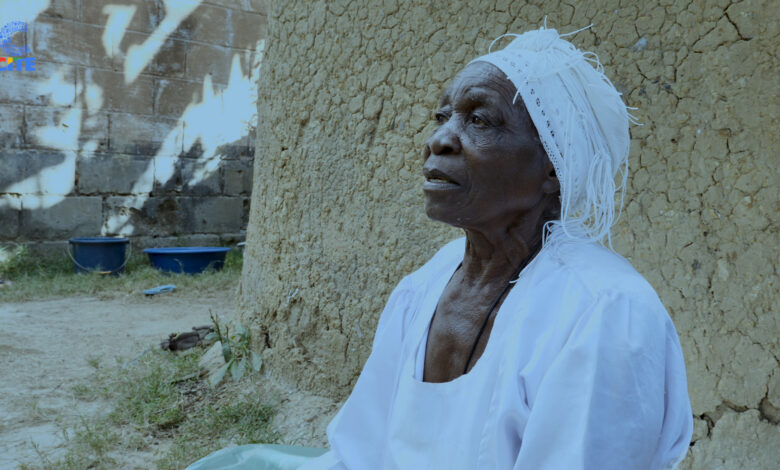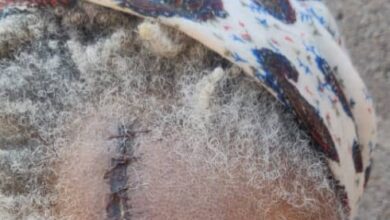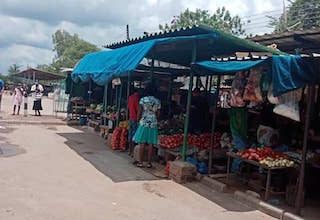Family haunted by dead ex-ZPRA fighter’s spirit, want remains exhumed

In a startling case, one family in Kenzamba KwaGore area under Chief Makonde in Mashonaland West says it is haunted by the spirit of a dead former ZPRA fighter they buried in 1978.
The spirit wants the remains of the freedom fighter to be exhumed and interred at his home but the family has no knowledge of who he was or where his family might be and are desperately appealing to authorities to help them account for this former freedom fighter.
The family is also appealing to former ZPRA fighters who operated in the Kenzamba KwaGore area to come forward and possibly identify him so that his family can give him a decent burial.
In an interview on The Breakfast Club hosted by CITE, Elifia Murindagomo, who confirmed she was one of the three that buried the fighter, said the dead’s spirit was begging to be reunited with his kinsmen.
Narrating her ordeal Murindagomo claimed ever since the man’s burial, he had been appearing in her dreams.
“He will be happy once he is reunited with his people and we can finally rest. We did our duty in helping bury him but it’s sad that his remains are yet to be exhumed so he can be reunited with his family,” she said, noting that his family could also be facing the same affliction yet do not know of his whereabouts.
Murindagomo narrated that during the war, she usually moved from Makonde to Kenzamba, which were her mother and father’s rural home respectively.
“I first saw what war looks like in Makonde while my first time seeing comrades, I was with my young sister. We met one comrade standing by a tree in the village and asked us where the village head’s home was. We showed him that the home he was facing was the one. He tasked us to tell the village head that some comrades operating by one mountain in the area were hungry,” she said.
“In a short space of time, after the village head had informed the villagers, people gathered in the bush with food which was shared by the comrades.”
Murindagomo said this became the norm for the freedom fighters to visit their homes asking for food, which would be served to them.
“The comrades would be happy and relax, sometimes they even sang,” she said.
When the war became intense, most of the comrades lost their lives, Murindagomo noted, claiming that one time three helicopters came to take bodies of the deceased.
“One day, children herding cattle told us they had seen a dead person. When we went to the scene, we saw him too. His clothes were torn exposing his skin. We left the body there,” she said.
“When we went about with our farming, one comrade came to us and asked why we continued farming when there was a dead person next to the field. My father said ‘we had not buried him because we didn’t know who he was and assumed that perhaps his fellow fighters would come for the body. The comrades said he was one of theirs and asked us to bury him.”
Murindagomo said she, her sister and brother-in-law, who was a village head, buried him.
“Three comrades or so came and placed stones on his grave,” she said.
“After the burial, we hid the picks and shovels in our field, fearing that soldiers would see and ask us questions.”
A week later, Murindagomo claimed some herd boys came to them and told they saw an arm protruding from that grave.
“I went to check and from a distance, I saw his arm,” she said
“Afterwards he started appearing in my dreams but his body features would be hidden and I assumed that he was hiding his nakedness, since we had buried him without clothes.”
Murindagomo said despite several efforts to talk to officials in Chinhoyi about this phenomenon nothing had been done.
“When he comes to my dreams, I relay to him that I had taken his issues to others but no one had acted. One time, he even appeared before the children, who thought he was real as he went to the kraal. The children asked him questions but he did not reply so they offered him sweet potatoes and a piece of card box to write his name. He wrote something but the writing was not clear,” she said.
Now in her late seventies, Murindagomo lamented that the comrade’s spirt was still wandering about and she too was not at peace.
“He often cries that his body has suffered from mosquitoes and wants to go home,” she said.
“I have asked the village head to relay this to other traditional leaders including the chief. I can confirm this because I was the one who buried him and the one who sees his spirit.”
Some ex-ZPRA fighters in the area, Frederick Musapu, whose nom de guerre was Sotshangane Jimmy, and Willard Vengenai, whose nom de guerre, was Dingizulu Siwela concurred that they have heard the tale but could not identify the deceased as they operated in different sections.
But both said there was a need to repatriate their comrades who had died whilst fighting in the liberation struggle, as some families were still crying for the return of the bodies of “fallen husbands, sons and brothers.”





